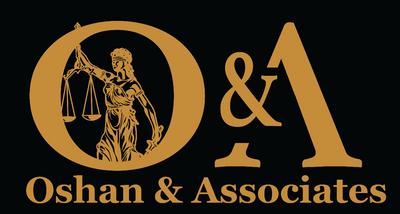What you need to know about Insurance bad faith claims
Insurance bad faith occurs when one party to an insurance agreement fails to deal fairly with the other. Insurance has now become a very viable, if not surefire, way to guard against economic loss. It protects you from loss that may arise from personal injury or damage to property. In fact, you are required by law to get an insurance policy in many instances. When you get insurance coverage, you enter into an agreement with the insurance company. Under this agreement, the insurer owes you several duties. One of these is the duty to act in good faith or the duty of fair dealing. Unfortunately, insurance companies are not very popular for complying with this duty. A lot of the time, policy holders have to institute action to enforce the duties owed by the insurer. Sometimes, to guard their profits, insurance companies use delay tactics or make arbitrary demands for proof. They also often deliberately misinterpret their policy or records to avoid responsibility to pay a claim. If your insurer does not act in good faith you may be able to hold the insurer responsible for their unfair dealing and receive compensation for their default. You should not have to go through the stress of making an insurance claim and still contend with bad faith from your insurer. We can help you hold your insurer accountable and recover the compensation you deserve.
What does an insurance bad faith claim entail?
Insurance companies may at times turn out to be bullies. More often than not, they have more expertise and financial resources than the policy holder. This can treat policy holders unfair and they often exercise this advantage to the detriment of the policyholder. A bad faith claim is an action in tort for breach of implied covenant of good faith and fair dealing. Some states have laws that expressly prohibit bad faith and outlaw certain types of actions that are considered bad faith. In California for instance, insurance bad faith is addressed through the instrument of the Unfair Claims Practice Act. You can bring a claim of bad faith against insurance companies in some jurisdictions under statute and common law. US federal law prohibits bad faith relating to claims made under the Employee Retirement Security Act of 1974.
The court usually awards damages above policy limits for successful bad faith claims against an erring insurer. The erring insurer may also be liable for emotional distress and interest accruable. In successful insurance bad faith cases, the court can award punitive damages against the insurer. The primary consideration in awarding punitive damages is wealth of the insurer and the malice of their act. Bad faith claims can be made in respect of any type of insurance policy. This includes automotive insurance, business insurance and any other type of insurance policy.
Elements of a bad faith insurance lawsuits at common law
You can generally bring a bad faith claim against dubious and unfair insurers under common law. The provisions of common law with regards to bad faith however differs from state to state. While some adopt the “unreasonable or without proper cause” qualification, some apply a narrower view. Some states view the whole issue as a breach of an insurance contract while other see as it as a tort. The requirement for proof in a common law claim of bad faith are as follows:
Benefits due under the policy were withheld
This first ingredient requires that a policyholder show that they have a valid claim under the terms of the insurance policy. Documents will be adduced in proof of the actual terms of the insurance policy. In some states, you will be required to make a final demand from the insurer as a condition precedent to filing the lawsuit.
The reason for withholding benefits was unreasonable
The court will also take a cursory look into the insurer’s reason for withholding the benefits. The test usually adopted by the court is the objective test. It asks the question “Is it reasonable in the circumstance of the case that the benefits be withheld?”
Elements of a bad faith claim under Washington statutes
Under Washington law, you can make an additional statutory claim to your common law claim of insurance bad faith. This can be done by bringing an action under the Consumer Protection Act. Another option is the Unfair Claim Practice Act. This is largely administrative though as there may be no recourse to the court.
The following are actions that may be proved to be successful in an insurance claim;
-
Failure of insurer to implement reasonable standards to investigate claim: Investigations must be conducted fairly. Failure to ensure fairness in investigating an insurance claim is bad faith.
-
Refusal to pay claims without reasonable investigation: Every insurance policy claim contains an implied duty of good faith and fair dealing. This requires an insurance company to conduct prompt and thorough investigations on every claim.
-
Compulsion of policyholder to litigate to recover amounts due under an insurance policy: Ordinarily, claims ought to be made without resort to court. An evidence of bad faith occurs when a policy holder is compelled to resort to litigation before recovering amounts due to them under an insurance policy.
-
Failure to attempt a prompt, fair and equitable settlement of claims despite clarity of insurer liability: The law requires that insurance companies use fair claims practices. Failure to attempt a fair settlement of claims runs afoul of this and can be considered as bad faith. Another deceptive tactic that may be employed by the insurance company is the failure to disclose existence of coverage.
-
Offering less money that a claim is worth: Insurance companies are bound by law to pay the exact amount a claim is worth. Offering less or paying less amounts to bad faith.
- Failure to provide a reasonable basis for denial of the policyholder’s due under the insurance policy.
- An insurer is barred by law from making threatening statements to policyholders or third parties.
Starting a bad faith lawsuit
You don’t have to battle an insurance company all on your own. They have the tactics, expertise, experience, negotiating strength and financial resources to overawe you. It is advisable that you get an attorney that matches up with that tactical strength and wealth of experience. Consult with us today to see if your insurer is acting in bad faith and the options available to you. Our lawyers at Oshan and Associates are skilled at insurance bad faith claims and have the experience to provide thorough representation for you. Take advantage of our free no-obligation consultation to start a conversation with us today. Call us on 206-335-3880 to book your consultation.
























